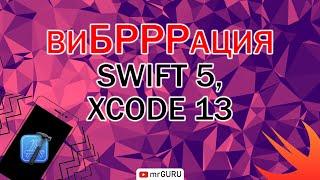للاستفسار :
فيس بوك : https://www.facebook.com/eslam.khder.98
لينكد ان : https://www.linkedin.cn/in/eslam-khder-4145351b0
==================================================
Java (programming language)
From Wikipedia, the free encyclopedia
Jump to navigationJump to search
"Java language" redirects here. It is not to be confused with Javanese language.
Not to be confused with JavaScript.
Java
Java programming language logo.svg
Paradigm Multi-paradigm: generic, object-oriented (class-based), functional, imperative, reflective
Designed by James Gosling
Developer Oracle Corporation
First appeared May 23, 1995; 26 years ago[1]
Stable release
Java SE 16.0.2[2] Edit this on Wikidata / 20 July 2021; 44 days ago
Typing discipline Static, strong, safe, nominative, manifest
Filename extensions .java, .class, .jar
Website oracle.com/java/
Influenced by
CLU,[3] Simula67,[3] Lisp,[3] Smalltalk,[3] Ada 83, C++,[4] C#,[5] Eiffel,[6] Mesa,[7] Modula-3,[8] Oberon,[9] Objective-C,[10] UCSD Pascal,[11][12] Object Pascal[13]
Influenced
Ada 2005, BeanShell, C#, Chapel,[14] Clojure, ECMAScript, Fantom, Gambas,[15] Groovy, Hack,[16] Haxe, J#, Kotlin, PHP, Python, Scala, Seed7, Vala, JavaScript
Java Programming at Wikibooks
Java is a high-level, class-based, object-oriented programming language that is designed to have as few implementation dependencies as possible. It is a general-purpose programming language intended to let application developers write once, run anywhere (WORA),[17] meaning that compiled Java code can run on all platforms that support Java without the need for recompilation.[18] Java applications are typically compiled to bytecode that can run on any Java virtual machine (JVM) regardless of the underlying computer architecture. The syntax of Java is similar to C and C++, but has fewer low-level facilities than either of them. The Java runtime provides dynamic capabilities (such as reflection and runtime code modification) that are typically not available in traditional compiled languages. As of 2019, Java was one of the most popular programming languages in use according to GitHub,[19][20] particularly for client-server web applications, with a reported 9 million developers.[21]
Java was originally developed by James Gosling at Sun Microsystems (which has since been acquired by Oracle) and released in 1995 as a core component of Sun Microsystems' Java platform. The original and reference implementation Java compilers, virtual machines, and class libraries were originally released by Sun under proprietary licenses. As of May 2007, in compliance with the specifications of the Java Community Process, Sun had relicensed most of its Java technologies under the GPL-2.0-only license. Oracle offers its own HotSpot Java Virtual Machine, however the official reference implementation is the OpenJDK JVM which is free open-source software and used by most developers and is the default JVM for almost all Linux distributions.
As of March 2021, the latest version is Java 16, with Java 11, a currently supported long-term support (LTS) version, released on September 25, 2018. Oracle released the last zero-cost public update for the legacy version Java 8 LTS in January 2019 for commercial use, although it will otherwise still support Java 8 with public updates for personal use indefinitely. Other vendors have begun to offer zero-cost builds of OpenJDK 8 and 11 that are still receiving security and other upgrades.
Oracle (and others) highly recommend uninstalling outdated versions of Java because of serious risks due to unresolved security issues.[22] Since Java 9, 10, 12, 13, 14, and 15 are no longer supported, Oracle advises its users to immediately transition to the latest version (currently Java 16) or an LTS release.
Contents
1 History
1.1 Principles
1.2 Versions
2 Editions
3 Execution system
3.1 Java JVM and bytecode
3.1.1 Performance
3.2 Non-JVM
3.3 Automatic memory management
4 Syntax
4.1 Hello world example
4.2 Example with methods
5 Special classes
5.1 Applet
5.2 Servlet
5.3 JavaServer Pages
5.4 Swing application
5.5 JavaFX application
5.6 Generics
6 Criticism
7 Class libraries
8 Documentation
9 Implementations
10 Use outside the Java platform
10.1 Android
10.1.1 Controversy
11 See also
11.1 Comparison of Java with other languages
12 References
13 Works cited
14 External links
History
See also: Java (software platform) § History
Duke, the Java mascot
James Gosling, the creator of Java, in 2008
فيس بوك : https://www.facebook.com/eslam.khder.98
لينكد ان : https://www.linkedin.cn/in/eslam-khder-4145351b0
==================================================
Java (programming language)
From Wikipedia, the free encyclopedia
Jump to navigationJump to search
"Java language" redirects here. It is not to be confused with Javanese language.
Not to be confused with JavaScript.
Java
Java programming language logo.svg
Paradigm Multi-paradigm: generic, object-oriented (class-based), functional, imperative, reflective
Designed by James Gosling
Developer Oracle Corporation
First appeared May 23, 1995; 26 years ago[1]
Stable release
Java SE 16.0.2[2] Edit this on Wikidata / 20 July 2021; 44 days ago
Typing discipline Static, strong, safe, nominative, manifest
Filename extensions .java, .class, .jar
Website oracle.com/java/
Influenced by
CLU,[3] Simula67,[3] Lisp,[3] Smalltalk,[3] Ada 83, C++,[4] C#,[5] Eiffel,[6] Mesa,[7] Modula-3,[8] Oberon,[9] Objective-C,[10] UCSD Pascal,[11][12] Object Pascal[13]
Influenced
Ada 2005, BeanShell, C#, Chapel,[14] Clojure, ECMAScript, Fantom, Gambas,[15] Groovy, Hack,[16] Haxe, J#, Kotlin, PHP, Python, Scala, Seed7, Vala, JavaScript
Java Programming at Wikibooks
Java is a high-level, class-based, object-oriented programming language that is designed to have as few implementation dependencies as possible. It is a general-purpose programming language intended to let application developers write once, run anywhere (WORA),[17] meaning that compiled Java code can run on all platforms that support Java without the need for recompilation.[18] Java applications are typically compiled to bytecode that can run on any Java virtual machine (JVM) regardless of the underlying computer architecture. The syntax of Java is similar to C and C++, but has fewer low-level facilities than either of them. The Java runtime provides dynamic capabilities (such as reflection and runtime code modification) that are typically not available in traditional compiled languages. As of 2019, Java was one of the most popular programming languages in use according to GitHub,[19][20] particularly for client-server web applications, with a reported 9 million developers.[21]
Java was originally developed by James Gosling at Sun Microsystems (which has since been acquired by Oracle) and released in 1995 as a core component of Sun Microsystems' Java platform. The original and reference implementation Java compilers, virtual machines, and class libraries were originally released by Sun under proprietary licenses. As of May 2007, in compliance with the specifications of the Java Community Process, Sun had relicensed most of its Java technologies under the GPL-2.0-only license. Oracle offers its own HotSpot Java Virtual Machine, however the official reference implementation is the OpenJDK JVM which is free open-source software and used by most developers and is the default JVM for almost all Linux distributions.
As of March 2021, the latest version is Java 16, with Java 11, a currently supported long-term support (LTS) version, released on September 25, 2018. Oracle released the last zero-cost public update for the legacy version Java 8 LTS in January 2019 for commercial use, although it will otherwise still support Java 8 with public updates for personal use indefinitely. Other vendors have begun to offer zero-cost builds of OpenJDK 8 and 11 that are still receiving security and other upgrades.
Oracle (and others) highly recommend uninstalling outdated versions of Java because of serious risks due to unresolved security issues.[22] Since Java 9, 10, 12, 13, 14, and 15 are no longer supported, Oracle advises its users to immediately transition to the latest version (currently Java 16) or an LTS release.
Contents
1 History
1.1 Principles
1.2 Versions
2 Editions
3 Execution system
3.1 Java JVM and bytecode
3.1.1 Performance
3.2 Non-JVM
3.3 Automatic memory management
4 Syntax
4.1 Hello world example
4.2 Example with methods
5 Special classes
5.1 Applet
5.2 Servlet
5.3 JavaServer Pages
5.4 Swing application
5.5 JavaFX application
5.6 Generics
6 Criticism
7 Class libraries
8 Documentation
9 Implementations
10 Use outside the Java platform
10.1 Android
10.1.1 Controversy
11 See also
11.1 Comparison of Java with other languages
12 References
13 Works cited
14 External links
History
See also: Java (software platform) § History
Duke, the Java mascot
James Gosling, the creator of Java, in 2008
Комментариев нет.




![Android-разработка[8]. Работа с сетью](https://appdrafting.com/uploads/thumbs/c0b372616-1.jpg)
